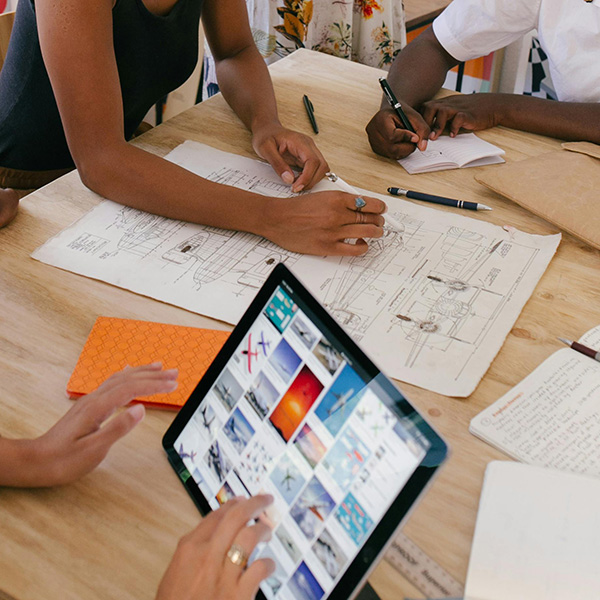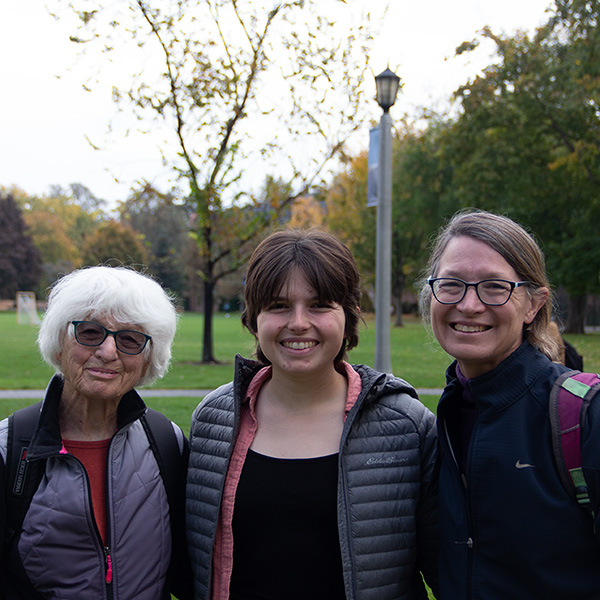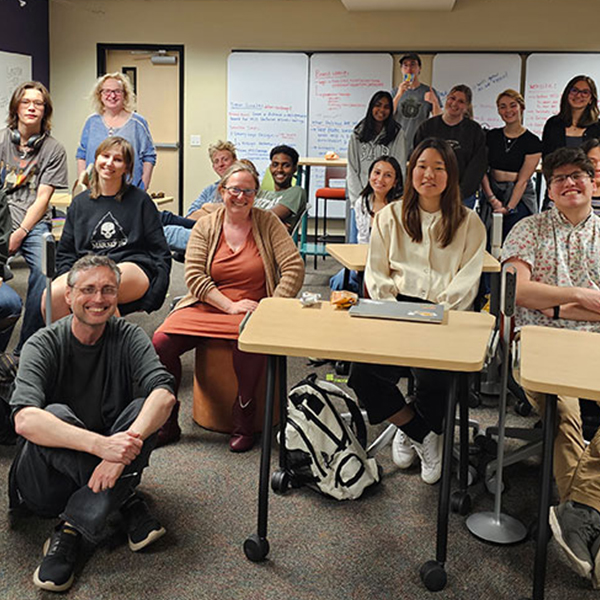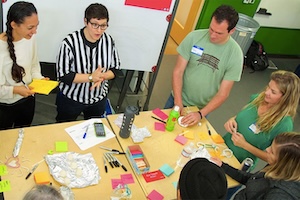

Human-Centered Design
Design a better world.
The Human-Centered Design concentration can enrich any Whitman major. It brings together diverse perspectives to help you understand how people interact with the designed world—and how to solve problems in ways that put people at the heart of the solution. In your introductory Human-Centered Design courses, you’ll learn principles of design thinking. Then you’ll build on them in Deepening Courses drawn from the areas of study that interest you most. This versatile concentration will rev up your critical thinking skills and give you problem-solving tools to apply to any career.
3 Reasons to Study Human-Centered Design at Whitman
Interested in Human-Centered Design?
We’d love to send you information, including more on academic majors and student life at our beautiful campus in Walla Walla, Washington.
“Human-Centered Design has taught me to understand human needs and social contexts. I have learned how to intertwine subjects that might not initially be thought of as being grouped together.”
Our Whitman Student Voices BlogCourses in Human-Centered Design
See just a few of the fascinating courses you might take.

Introduction to Human-Centered Design
As you begin your concentration, you’ll learn core concepts of design thinking and get to know a suite of design tools that can benefit any major. You’ll gain experience through studio exercises and a collaborative project. This team-taught course is a perfect preparation for selecting your Deepening Courses, choosing a Collaborative Practical Experience and envisioning your design portfolio.

Design Research Methods
In this “Observe and Evaluate” Deepening Course, you’ll learn the fundamentals of collecting and analyzing data from people to inform your designs. You’ll learn how to survey, interview, do participatory design, experiment and observe. And you’ll have important discussions about topics like research ethics, how and when to gather and interpret data, and the best methods to inform a design.

Problems With Privilege
In this “Understand People” Deepening Course from the Gender Studies Department, you’ll explore what it really means to “check your privilege.” You’ll learn how structures of discrimination and privilege (including sexism, racism and colonialism) intersect. And you’ll explore important design questions, like: Whose voices get to be heard? How do we listen effectively? And what questions haven’t we raised?

Human-Computer Interaction
How do people interact with computers? And how can we design computer systems that make people’s lives better? In this “Design and Make” Deepening Course, you’ll learn to apply psychological theories of perception, memory, attention, planning and learning to real design problems. And a semester-long team project will give you a chance to put iterative design principles into practice.

Human-Centered Design Capstone
Co-taught by a Human-Centered Design faculty member and a visiting Designer in Residence, this capstone course will bring together everything you’ve learned in your concentration as you create a design portfolio to showcase your work. Classes will feature regular guest lectures by Human-Centered Design faculty, and you’ll dig even deeper into professional issues in design, like empathy, ethics, collaboration, reciprocity and organizational culture.

Amazing Experiences You Can Pursue
Do real research before you graduate. Whitman undergraduates often do research alongside professors, co-author papers and present at national conferences. Those opportunities are priceless additions to resumes and graduate school applications.
Take your design skills outside the classroom. As part of your advanced work in the Human-Centered Design concentration, you’ll participate in a Collaborative Practical Experience, like an internship, a sustained community engagement or a collaborative project. This experience will help you apply what you’ve learned at Whitman and build your portfolio.
Explore a program assistantship. As a Human-Centered Design student, you’ll be able to apply for a paid summer/semester student program assistantship. Human-Centered Design assistants help with makerspaces, program functioning, social media outreach, summer design labs, an annual design-centered event and mentorship for new students.
Your Questions Answered
Human-Centered Design is an approach to problem-solving that puts people first. It encourages designers to understand the deeper meaning of objects, spaces and systems—and to create ethical solutions grounded in empathy, understanding and belonging.
A major is designed to provide in-depth understanding of a single subject. A concentration draws from many subjects and allows students to place their own academic interests in a wider context. A concentration can’t replace a major, but their course content can overlap.
A Human-Centered Design concentration can prepare you for a wide range of careers. Any industry that requires problem-solving skills and a deep understanding of people’s needs and abilities can benefit from Human-Centered Design. Graduates can go on to become product designers, program managers and user-experience researchers, for example. They can become web and mobile app developers and user interface designers. Or they might pursue a career in social impact design, which uses the principles of Human-Centered Design to address systemic social challenges like immigration, international development and climate change.














